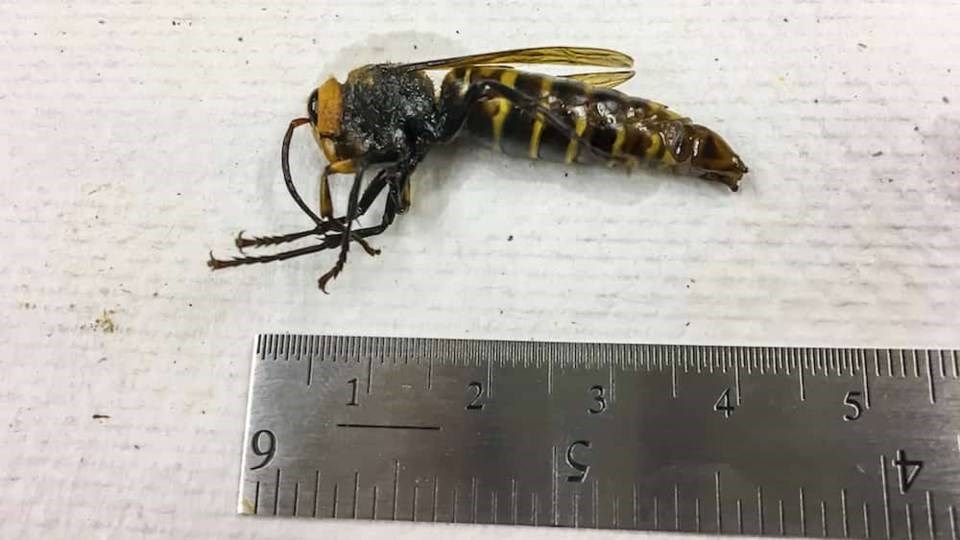About 200 people will be hired this year to track down and control the Asian giant hornet, giant hogweed, scotch broom and other invasive species across the province.
The hiring blitz, already under way, will let the Invasive Species Council of B.C. find and manage more than 100 species of plants and animals. Funding is coming from the provincial government’s COVID-19 economic recovery plan.
The plan provides new job opportunities for unemployed or underemployed people, with a focus on hiring displaced agriculture, tourism and forestry workers, Indigenous peoples, youth, women and others with jobs affected by the pandemic.
“We have a wealth of experience in delivering large-scale employment-based programming, and a strong network across B.C. working with governments, Indigenous organizations, industry, provincial and regional non-profit organizations and others to reduce impacts of invasive species,” said Gail Wallin, executive director of the Invasive Species Council.
The council said $12 million has been allocated for expanded training and collaboration with land managers, local governments, Indigenous communities and others to detect and remove invasive species over the next 15 months. A total of $8 million is directed to province-wide hiring.
Invasive Species Council chair David Bennett said the training opportunities and new jobs are timely considering the employment losses brought on by the pandemic. “Developing new jobs that will help protect our environment from invasive species will greatly benefit Indigenous and rural communities throughout the province,” he added.
The new jobs created will vary from entry level positions to skilled roles, and include training for outreach programs, reporting and behavior change initiatives and on-the-ground management of invasive species on provincial public land and waters, as well as reserve and local government lands.
Positions are being posted at bcinvasives.ca.




